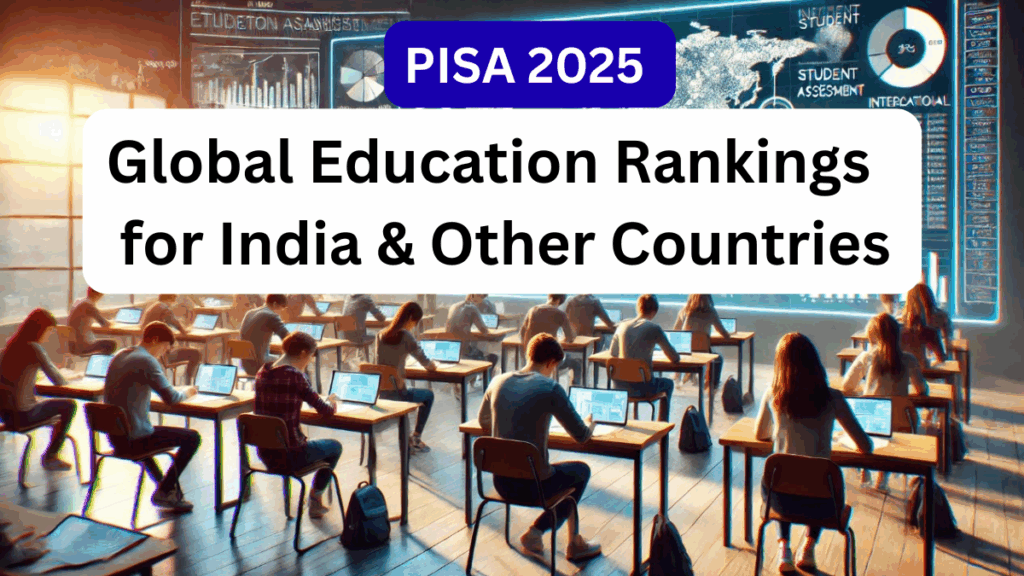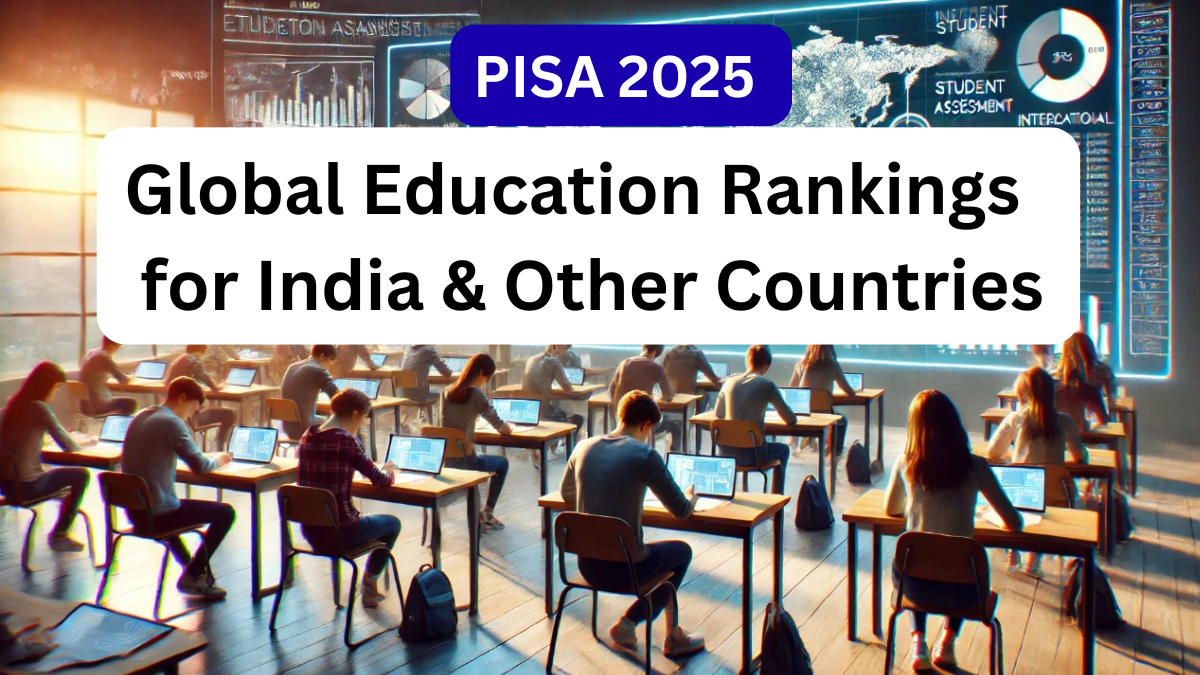The PISA 2025 results are eagerly awaited by educators, policymakers, and parents worldwide. The Programme for International Student Assessment (PISA) evaluates 15-year-old students’ abilities in reading, mathematics, and science across participating countries. It is a crucial tool to understand how nations are performing in global education.
For India, these rankings provide insights into the effectiveness of the country’s education system and highlight areas that require immediate attention.

What is PISA 2025?
-
Conducted every three years by the OECD, PISA assesses key competencies among students.
-
Covers three major domains:
-
Reading literacy – Understanding, using, and reflecting on written texts.
-
Mathematics literacy – Applying math knowledge to real-life problems.
-
Science literacy – Ability to explain scientific phenomena and evaluate evidence.
-
-
Offers a Global Education Ranking for participating nations, helping identify strengths and weaknesses in their education systems.
India’s Performance in PISA 2025
India has made significant strides in education, but the PISA 2025 results reveal both progress and challenges.
Highlights for India:
-
Increased focus on digital learning and STEM programs
-
Improvements in reading literacy, especially among urban students
-
Persistent gaps in rural education infrastructure affecting overall scores
| Domain | Average Score India | OECD Average | Performance Insight |
|---|---|---|---|
| Reading Literacy | 450 | 500 | Moderate, with urban-rural gap |
| Mathematics Literacy | 435 | 490 | Needs improvement in problem-solving |
| Science Literacy | 440 | 495 | Showing gradual improvement |
India continues to work on narrowing the gap between its students and OECD averages, with a focus on holistic learning rather than rote memorization.
Global Education Rankings: Top Performing Countries
The PISA 2025 global education ranking shows some predictable leaders, but also highlights surprising gains from emerging nations.
| Rank | Country | Average Score | Notes |
|---|---|---|---|
| 1 | Singapore | 560 | Strong STEM focus, disciplined curriculum |
| 2 | Finland | 555 | Student-centric learning, high teacher quality |
| 3 | Canada | 540 | Inclusive policies, high literacy rates |
| 10 | India | 442 | Significant progress, urban-rural disparity remains |
| 15 | China (Beijing, Shanghai, Jiangsu, Zhejiang) | 535 | High emphasis on mathematics and science |
The table shows that while India is climbing in the rankings, there is still a gap between the country and global leaders.
Key Takeaways from PISA 2025
-
Digital Learning Impact: Countries integrating technology in classrooms are performing better
-
Teacher Training Matters: Continuous professional development improves student outcomes
-
Equity is Critical: Reducing urban-rural and socio-economic disparities is essential for better national performance
-
Holistic Learning: Focus on problem-solving and critical thinking over rote memorization leads to higher scores
FAQs about PISA 2025
Q1. What is the significance of PISA 2025 for India?
A: It provides a benchmark to compare India’s education system with other countries and helps policymakers identify areas for improvement.
Q2. Which domains are assessed in PISA 2025?
A: Reading, mathematics, and science literacy, with an emphasis on real-life application and problem-solving.
Q3. How can India improve its Global Education Ranking?
A: By focusing on teacher training, digital learning, reducing rural-urban disparities, and promoting critical thinking skills.
Q4. Are private schools in India performing better than public schools in PISA?
A: Generally, urban private schools show higher performance, highlighting the need to uplift public school standards.
Conclusion
The PISA 2025 results are a wake-up call as well as an opportunity for India to strengthen its education system. By addressing gaps and investing in teacher quality, infrastructure, and holistic learning, India can aim for a stronger position in the Global Education Ranking in the coming years.
Click here to learn more
